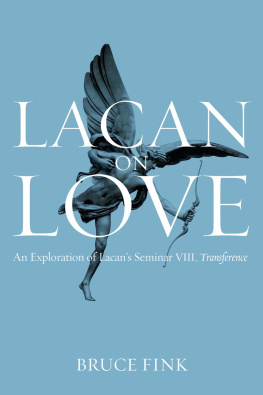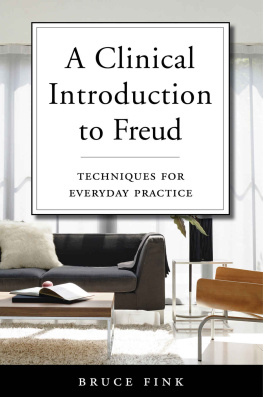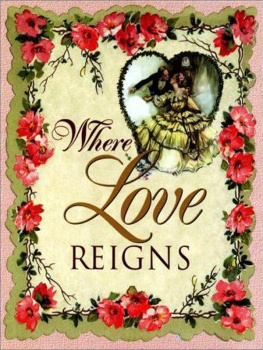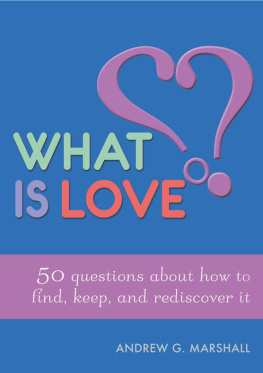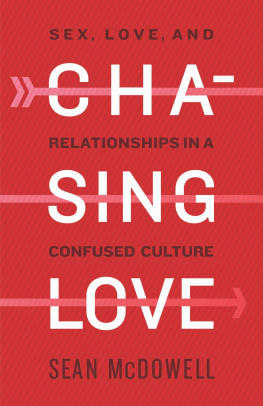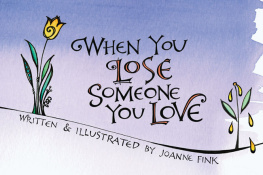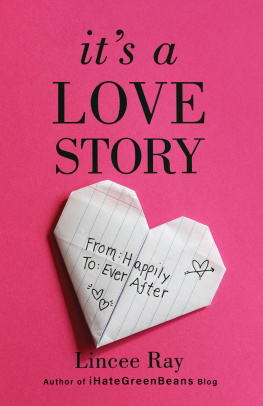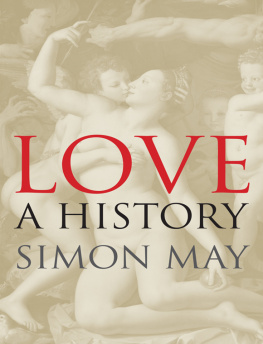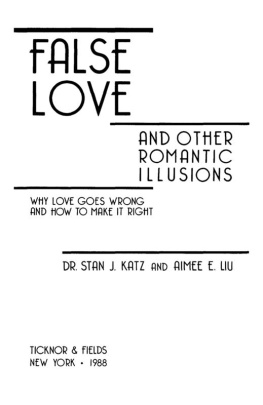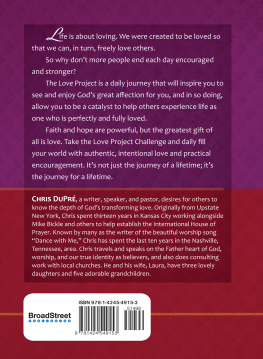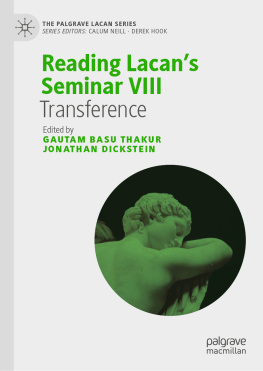Contents
Guide
Pages

Pour Hlose, mon amour
As for what it means to love [...], I must at least, like Socrates, be able to credit myself with knowing something about it. Now if we take a look at the psychoanalytic literature, we see that this is what people talk about the least. [...] Isnt it astonishing that we analysts who make use of love and talk about nothing else can be said to present ourselves as truly deficient when compared to [the philosophical and religious] tradition? We havent made even a partial attempt to add to much less revise what has been developed over the centuries on the subject of love or provide something that might be not unworthy of this tradition. Isnt that surprising? (Lacan, 2015, p. 16)
Lacan on Love
An Exploration of Lacans Seminar VIII, Transference
Bruce Fink
polity
Copyright Bruce Fink 2016
The right of Bruce Fink to be identified as Author of this Work has been asserted in accordance with the UK Copyright, Designs and Patents Act 1988.
First published in 2016 by Polity Press
Polity Press
65 Bridge Street
Cambridge CB2 1UR, UK
Polity Press
350 Main Street
Malden, MA 02148, USA
All rights reserved. Except for the quotation of short passages for the purpose of criticism and review, no part of this publication may be reproduced, stored in a retrieval system, or transmitted, in any form or by any means, electronic, mechanical, photocopying, recording or otherwise, without the prior permission of the publisher.
ISBN-13: 978-1-5095-0053-6
A catalogue record for this book is available from the British Library.
Library of Congress Cataloging-in-Publication Data
Fink, Bruce, 1956-, author.
Lacan on love : an exploration of Lacans Seminar VIII, Transference / Bruce Fink.
p. ; cm.
Includes bibliographical references and index.
ISBN 978-1-5095-0049-9 (hardcover : alk. paper) -- ISBN 1-5095-0049-9 (hardcover : alk. paper) -- ISBN 978-1-5095-0050-5 (pbk. : alk. paper) -- ISBN 1-5095-0050-2 (pbk. : alk. paper) I. Title.
[DNLM: 1. Lacan, Jacques, 19011981. Sminaire de Jacques Lacan. Livre 8, Transfert : 19601961. 2. Love. 3. Transference (Psychology) 4. Psychoanalytic Theory. WM 62] RC454
616.89--dc23
2015009802
The publisher has used its best endeavours to ensure that the URLs for external websites referred to in this book are correct and active at the time of going to press. However, the publisher has no responsibility for the websites and can make no guarantee that a site will remain live or that the content is or will remain appropriate.
Every effort has been made to trace all copyright holders, but if any have been inadvertently overlooked the publisher will be pleased to include any necessary credits in any subsequent reprint or edition.
For further information on Polity, visit our website: politybooks.com
Preface
Whether to vilify and bury love once and for all or, rather, to praise it the dilemma has preoccupied poets and philosophers for millennia. Whether to celebrate the incomparable joy love brings or denounce the intense pain and desperation one suffers in its wake, whether to glorify its life-giving virtues or expose its cruelty and illusions that is the question certain psychoanalysts, too, have weighed in on, following in the footsteps of the bards and literati.
Relations between Eros, the Greek god of love (Cupid to the Romans), and psychoanalysis have not always been cordial, to say the least. Freud at times reduced love to the dependency of a child on its mother, the childs affection for her deriving essentially from her ability to satisfy the childs hunger for food, warmth, and closeness. Jekels and Bergler, well-known first- and second-generation analysts, decried love as nothing more than the wish to be loved hence a narcissistic project.
It seems that psychoanalysts have long been divided over the question whether to condemn love as a form of self-deception a mirage, a cover for something else, a simple narcissistic project parading as altruism or as the holy of holies, the greatest of all possible psychical accomplishments. Erik Erikson attributed to Freud the well-known formulation that psychoanalysis strives to restore the patients ability to love and work and the more sublimated forms of so-called selfless love for others (charity, for example) as often but a poor disguise for self-aggrandizement and condescension toward others.
Nevertheless, the early analysts were hardly the first to propose conflicting appraisals of love. Centuries before Plato and Aristotle held court in Athens, Hesiod taxed women with generally being bad for men, warning men that:
A bad [wife] makes you shiver with cold;
A greedy wife roasts you alive with no help from a roaring blaze,
And tough though you be brings you to a raw old age.
(Hesiod, trans. Wender: 1973)
But he also opined that No prize is greater than a worthy wife. Love, in his account of it (in the context of marriage) and depending on the character of ones beloved, could give rise to the worst of evils or the very best life can offer.
In ancient Greece and Rome, it was common to characterize love as an attack, Cupid being depicted as physically burning the lover with a torch or shooting the lover with arrows, even as Love was celebrated as a great god.
Hlisenne de Crenne, the Renaissance author of Torments of Love, depicted love as a lamentable illness and a most cruel calamity. It is a passion in the soul that reduces us to perplexity and sadness because we cannot enjoy what we love.enamored). Yet, as tormenting and calamitous as love is in her novel, Crennes characters live only for the enlivening sensations it brings.
For the nineteenth-century Stendhal, love and its attendant uncertainties and palpitations are the leisure classes antidote to boredom, and the less contact one has with ones beloved, the more deliciously sublime ones love can be. His British contemporary, Jane Austen, prefers the language of attachment to that of Stendhals coup de foudre, the thunderbolt of love at first sight that so preoccupied him. Charlottes pronouncement in Austens novel Pride and Prejudice is decidedly pessimistic:
Happiness in marriage is entirely a matter of chance. If the dispositions of the parties are ever so well known to each other or ever so similar beforehand, it does not advance their felicity in the least. They always continue to grow sufficiently unlike afterwards to have their share of vexation; and it is better to know as little as possible of the defects of the person with whom you are to pass your life. (p. 17)
Yet Austens overriding view rejects both Charlottes cynicism and Stendhals quintessentially Romantic-era celebration of love at a distance (consider Mariannes gradual attachment to Colonel Brandon in Sense and Sensibility).
To round out this thumbnail sketch of contrasting appraisals of love with a jump to the twentieth century, we need but juxtapose Carole Kings 1976 conclusion that Only Love Is Real with the J. Geils Bands 1980 assessment that Love Stinks.
The situation becomes far more complex when, instead of simply giving love the thumbs-up or the thumbs-down, instead of praising love as a munificent marvel or skewering it as a pestilent affliction, we raise the thorny question, What is love?
For one person, to discuss love is to discuss theology, love being sent to us by the gods; for another, it is an investment in someone whose value should be ascertained conclusively before one becomes enamored; for a third, love is what resolves differences among partners in a sort of musical harmony; for a fourth, it is the attempt to find and fuse anew with our other half; for a fifth, love is peaceful and just, moderate, temperate, and sound-minded; for a sixth, love is a messenger between mortals and immortals, and is tantamount to the worship of beauty and all six of these views of love are found in but one of Platos dialogues, the

